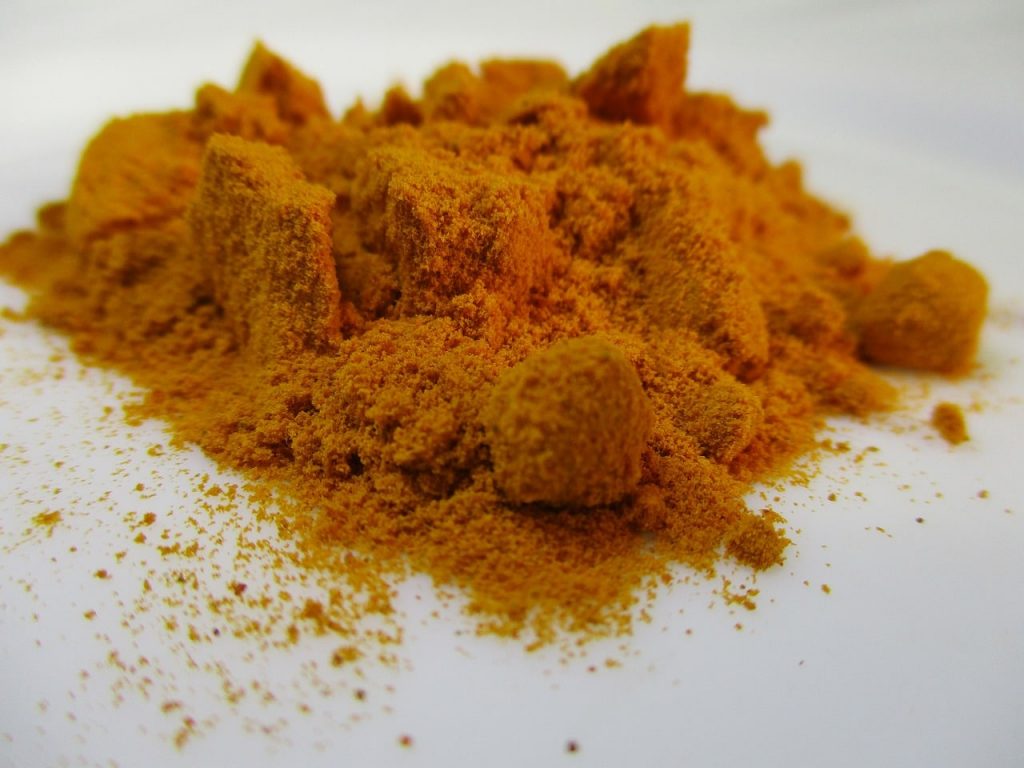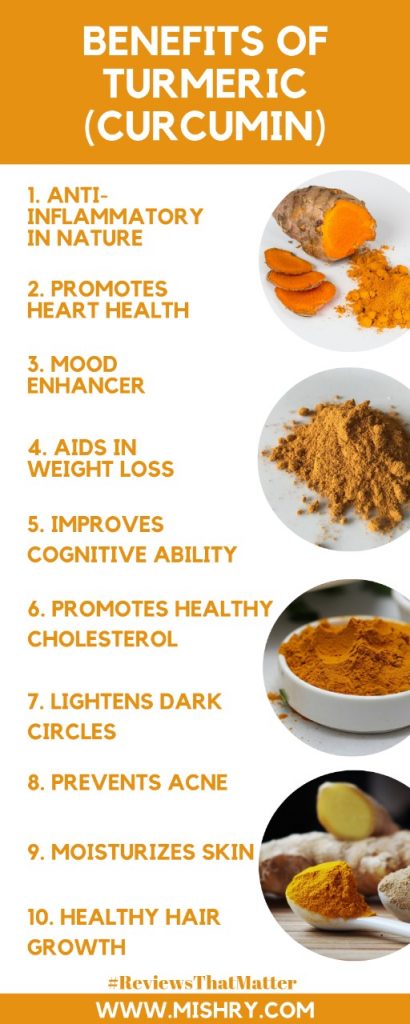Sprung from the deep roots of Ayurveda, the benefits of turmeric can hardly be ignored. One way or the other, its universal significance affects us all. Turmeric, or haldi, is anti-bacterial, anti-inflammatory and antioxidant in nature. In fact, turmeric is one of the few natural antibiotics that have a long list of benefits that are hard to ignore.
Turmeric contains a naturally occurring compound called curcumin, which is the reason behind its beneficial properties as well as its bright yellow color. Used for over 4000 years for its health and beauty benefits, turmeric’s ever-rising popularity and its balanced taste (as it can go with any dish) has made it a common and traditional item in every Indian household.
Related Reading: We review products over days, and sometimes weeks, so you can shop better.
Our detailed and in-depth review of 9 popular and commonly available haldi brands based on the amount of curcumin levels revealed 3 clear Top Picks. Here’s a link to our Best Turmeric (Haldi) Brand review.
Table of Contents
Watch: Benefits Of Turmeric | Haldi Benefits
Health Benefits of Turmeric
Some of the benefits of turmeric in your diet are:
1. Anti-Inflammatory In Nature
Thanks to curcumin, turmeric acts as a natural anti-inflammatory agent and has even been used for treating wounded soldiers during olden times. Its anti-inflammatory properties have also made it quite beneficial for the treatment of arthritis, as it can decrease the inflammation of joints that cause stiffness and may also cause pain relief. The efficiency of its work as an anti-inflammatory agent can be easily increased if it is consumed alongside other vegetables that provide similar benefits.
2. Promotes Heart Health
Heart diseases continue to be a major cause of worry among the general population. And a chief reason behind such diseases is the inflammation of blood vessels that transport blood to the heart. However, one of the most important benefits of curcumin is its ability to rectify the inner lining of the blood vessels, by preventing inflammation. It is responsible for the proper regulation of blood pressure and improves clotting, thus reducing the risk of heart disease.
3. Mood Enhancer
As the curcumin in turmeric boosts the brain-builder protein BDNF, it helps in the prevention of depression. Curcumin can also boost serotonin, a “happy” chemical in the brain that is regarded as mood uplifters. Moreover, the consumption of turmeric has proven to be quite beneficial for helping people who are suffering from various psychological issues as well.
Auto Amazon Links: No products found.
4. Aids In Weight Loss
Thanks to its ability as a mood enhancer, the consumption of turmeric can reduce stress. The secretion of stress hormones can result in the accumulation of fat in and around the abdominal area. A reduction in stress hormones brings down the risk of weight gain. Thus by aiding in the balancing of the stress hormones, turmeric helps maintain a healthy weight. Of course, this must be done in combination with a balanced diet and regular physical exercise.

5. Improves Cognitive Ability
Again one of the major benefits of curcumin (the chemical found in turmeric) is its ability to boost the absorption of protein by the body. This is quite an important factor as protein is an important nutrient that is responsible for the development of the brain. Considered to be the building block of the neuron cells, efficient absorption of protein can easily increase the number of neuron cells, making it easier for neurotransmitters like serotonin to travel more easily.
6. Promotes Healthy Cholesterol
High cholesterol is one of the main causes that are the result of the oxidative stress produced by free-radicals in the body, which further results in the inflammation of blood vessels, thus contracting them and increasing the pressure of blood flow. The increase in the rate of blood pressure is often linked to the rise in the amount of bad cholesterol in the blood. So, again, the anti-inflammation properties of turmeric can play a vital role in helping the body maintain a healthy level of cholesterol.
Apart from being its various health benefits, turmeric has been popular for centuries for its beauty benefits as well, as prescribed by Ayurveda. Here are some of the most popular beauty benefits associated with the addition of turmeric in a daily diet:
7. Reduces Dark Circles
Since turmeric is a proven anti-inflammatory and lightening agent, its application over the skin helps in the removal of the dead cells. Thus, leaving behind young and radiant skin, this can further help to reduce dark circles and puffiness as well.
8. Prevents Acne
Turmeric is a phenomenal remedy for acne treatment, as its application over the skin forms a thin protective film that prevents external bacteria from attacking the skin cells. In order to increase its efficiency, you can also combine it with apple cider vinegar that is rich in astringent properties, thus making it a more active skin toner.
9. Moisturizes Skin
The application of turmeric can aid the skin cells in retaining their moisture and revitalize skin by preventing it from getting dry. By speeding up the process of dead skin cells removal to reveal a rather youthful skin, turmeric paste protects the skin cells from further external damages. Moreover, once applied over the skin, turmeric is known to absorb the moisture from the surroundings, further directing it towards the skin cells.
10. Healthy Hair Growth
Turmeric has been long used as a remedy for dry and itchy scalp. This is due to the fact that curcumin (the chemical found in turmeric) has anti-microbial and anti-inflammatory qualities that can help soothe and inhibit dandruff growth in the scalp.
In fact, mixing a ½ teaspoon of turmeric powder with up to 3 tablespoons of coconut oil and leaving it on dry hair for about 30 minutes, can do the trick, making sure that you have healthy hair growth. This will help to keep the scalp moisturized by nourishing each and every inch of it.
Auto Amazon Links: No products found.

Turmeric Side-effects and Consumption
Now that we are aware of the various reasons regarding the consumption of turmeric, it is also important for us to know how much of it is good for consumption. One of the chief ingredients present in turmeric, which is also the main element behind its beneficial nature and bright yellow color, is called curcumin. First, let’s look at how a heavy consumption of turmeric can adversely affect your health.
A higher dosage of curcumin can be responsible for increasing the acidity of the stomach, thus resulting in various digestive problems such as acid reflux, and diarrhea. While a sufficient amount of curcumin can play tricks with your brain and can be quite beneficial for enhancing your mood, a higher dosage, however, can result in headaches. Though it is not yet found to be the case with humans, an unregulated consumption of turmeric by rats is linked with various side-effects such as inflammation, stomach ulcers, and in some cases, it has also shown to increase in the size of the liver.
How much turmeric should be consumed?
Well, if we are to be accurate, anything over 1000 milligrams of curcumin can cause harm to your health. And for your ease, if you are using turmeric as a spice, then you should note that about one teaspoon of turmeric roughly contains 200 milligrams of curcumin, and so five teaspoons of turmeric are more than enough per day.
Knowing about the beneficial nature of turmeric is just as important as knowing about its side-effects. It is vital to proceed with its consumption with all the information you need that would help you reap the benefits of this wonder spice, without any of its known side effects.
Auto Amazon Links: No products found.
Conclusion
Turmeric or commonly known as Haldi in India is used as a homemade cure for ages. Haldi is antibacterial as well as anti-inflammatory. In Indian food, it is widely used. Turmeric has numerous health benefits from weight loss to improving cardiac health. Also, it is great for the skin. Consuming Turmeric Milk soothes the throat. But as we say, everything is good in moderation. Overconsumption of turmeric causes side effects. So, it is recommended to consume up to 4 – 5 teaspoons a day.
Frequently Asked Question on Turmeric
Some frequently asked question on turmeric are-
1. How to use turmeric apart from adding it in food?
Turmeric or haldi can be used in different ways. You can add a pinch of it in your tea, or milk, you can add it in soups, kadhas, smoothies, etc., you could also add it in your bakes to add not just health, but to also add that beautiful yellow color.
2. Is turmeric root (kacchi haldi) better than turmeric powder?
Yes. Turmeric root or kacchi haldi has many natural oils retained; on the other hand, turmeric powder has some oils left out due to processing and drying.
3. Can we eat raw turmeric?
It is said that you can eat raw turmeric as it has anti-inflammatory properties, however, it is best to consult a medical expert to help you understand the quantity you must consume for your body.


